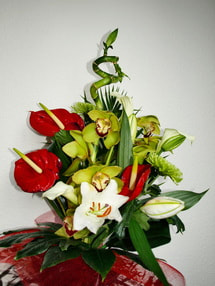| I had no intention of posting anything relating to Valentine’s Day, until I read a piece in the Guardian on reclaiming the day from the clutches of capitalism and tat: Could lockdown relight our love for Valentine’s Day? While you won’t catch me singing cheesy love songs or searching the snow for a posy of snowdrops, the article did ignite a twinge of nostalgia for the Valentines of early adolescence when receiving a card – or more often not – could make or break my day (week, month). And a concomitant soupçon of nostalgia for the nostalgia that inspired a scene in my debut novel, Sugar and Snails. So here’s my fractious 1970s household, where one teenager gets more cards than he ever wanted while another, with higher expectations, gets none. The images below the extract link to related material: a seasonal guest blog post, an online event and an offer of a free copy of Sugar and Snails. |
My mother held a sheet of newspaper against the chimney to draw the fire. Flames leapt behind it like shadows on a cinema screen. “The postman doesn’t always come before you’ve left for school, duck.”
“I know that, Mam.” Patricia slid her teaspoon between the pockets of sallow juice and the white pith of the fruit.
Je sais, Maman.
Trevor scuttled into his seat and scattered cornflakes into a blue-rimmed dish. He fluttered his eyelashes and blew kisses at Patricia. “He loves you. He loves you not. He loves you.”
Il t’aime.
“Shut it!” said Patricia.
Ferme la bouche!
My mother left the fire spitting and cracking in the grate and joined us at the table. We heard the clatter of the letterbox as she was pouring the tea. Patricia yelped and dashed from the room, Trevor at her heels calling Darling, darling, darling! I took advantage of the momentary quiet to re-read the list of words in my book.
Patricia flounced back into the room and flung a manila envelope onto the sideboard. She tossed a batch of square white ones onto the table beside my dish. Her hair veiled her face as she hunched over her grapefruit.
“Nothing from Nigel?” asked my mother.
“All for the skinhead,” snarled Patricia.
Toutes pour le garcon aux cheveux tres courts. Instead of looking tough, the haircut had given me the veneer of a concentration camp inmate. On the journey to school I’d hidden under my hood to stave off both the cold and the taunts of my schoolmates.
But other people were so unpredictable.
As I’d walked between classrooms, I’d been bombed by screaming girls fighting to stroke my hair, as if I were Donny Osmond. The news about the winning goal had served to fuel the hysteria. It was like being in a story where a fairy grants the hero three wishes and every single one goes wrong. I’d wished not to be an outcast only to become so much in demand I belonged more to other people than to myself. Now I squinted at an envelope that had landed, katey-cornered, on my textbook and pushed it away.
“It’ll probably come in the second post,” said my mother. “Or he’ll give it you at school.”
Trevor snatched an envelope from the jumbled heap beside me. “Roses are red, violets are blue, let me watch you do a poo!”
As I wrestled the envelope from my brother’s hand, it splashed into my cereal bowl. I picked it out, dripping milk, and placed it along with the others.
“Why don’t you open them?” said my mother. “Let’s see who’s your secret admirer.”
“It’s no secret,” said Patricia. “All the third-year girls are after him, the divs.”
I hadn’t realised it was Valentine’s Day. Why should I? No one had ever sent me a card before, not even as a joke. Not even Geraldine when we were kids.
“I wonder who that one with the curly writing is from,” said Patricia. “It looks ever so romantic.”
I’d have been far happier if the stack of envelopes on the table had been for her.
“Open your cards and let’s have done with it,” said my mother.
I loosened the knot in my tie and tugged at my collar. “They’re private.”
My mother snatched a card from the pile. “Don’t take it so serious. It’s no’but a bit of fun.”
As I tried to grab it back, Patricia and Trevor seized the rest and portioned them out between them. They ripped off the envelopes and tossed them in the fire.
“Listen to this,” said Trevor, flourishing a card with a couple in silhouette, hand in hand on a beach at sunset. “Roses are red, violets are blue, I want your body and I’ll give you mine too. Signed – Your Sweetheart.”
My mother frowned. “Isn’t that a bit risqué?” She must have decided it wasn’t, because she laughed and held up a card with a picture of two teddy bears cuddling. “Oh you are gorgeous, Oh you are sweet, You are the boy I so want to meet.”
“That’s nice,” said Patricia. “Who’s it from?”
My mother paused and widened her eyes, like an actress playing a simpleton on the telly. “An admirer.” She was giggly like that time we played pitch and putt with the ginger-haired twins.
“This is a belter!” Trevor held out a card depicting a young couple side-by-side on a swing. “Kiss me in the morning, Kiss me at night, Kiss me when you want to but always kiss me right.”
I felt embarrassed for them. It was all very well for my brother to mess about, he was only a kid, but Patricia was in the sixth form and my mother was ancient. I gulped down my tea and slapped my book closed, but none of them were paying me any attention.
“My turn,” said Patricia, inspecting a hand-made card dotted with silver-foil hearts. “All the girls may want you, All the girls may try, When I get my hands on you I’ll never let you go.”
“That’s rammel,” said Trevor. “It doesn’t rhyme.”
Patricia laughed. “Proper poetry doesn’t.”
Why did I feel this thing clawing at my stomach? It wasn’t as if I’d wanted the cards in the first place. I picked up my book and drifted off into the hallway, where I grabbed my coat and my duffel bag and headed off to school.

























 RSS Feed
RSS Feed





















